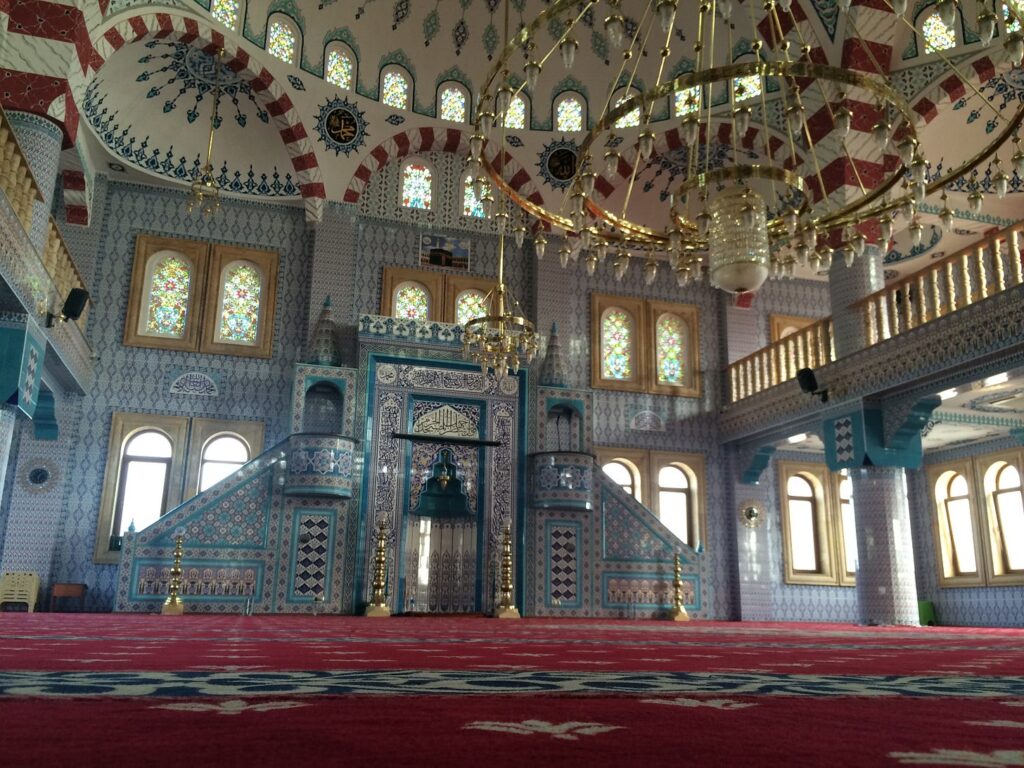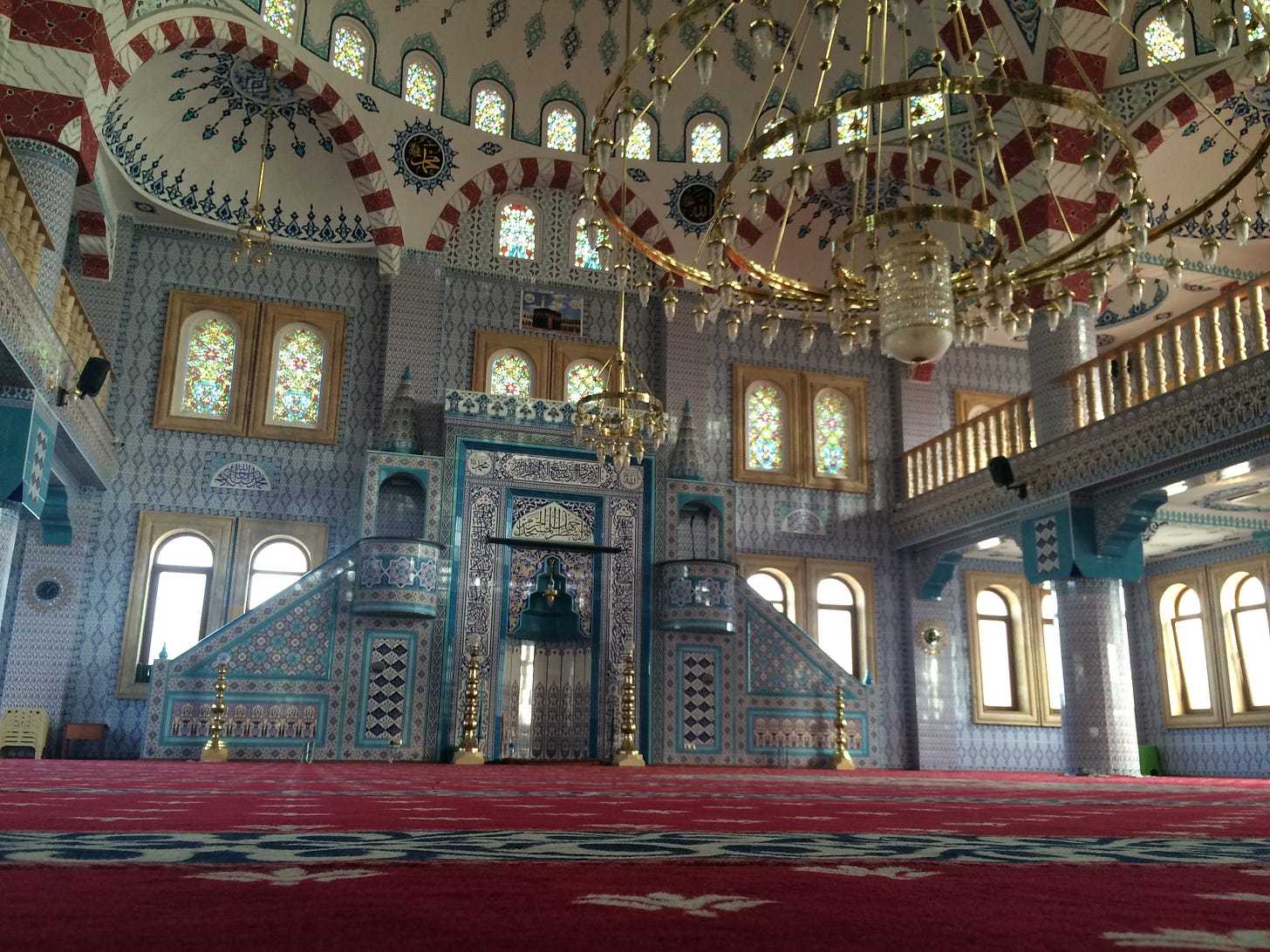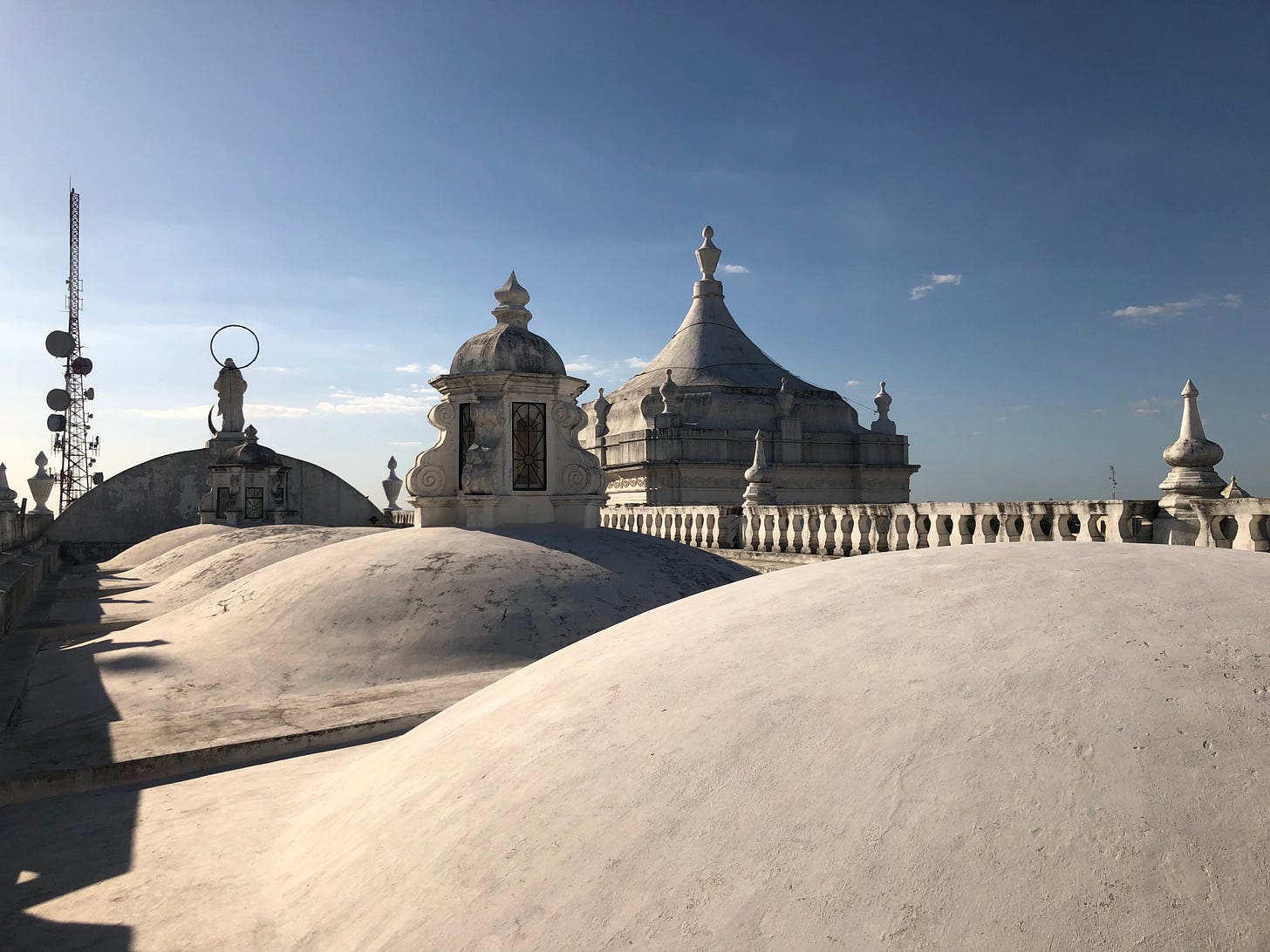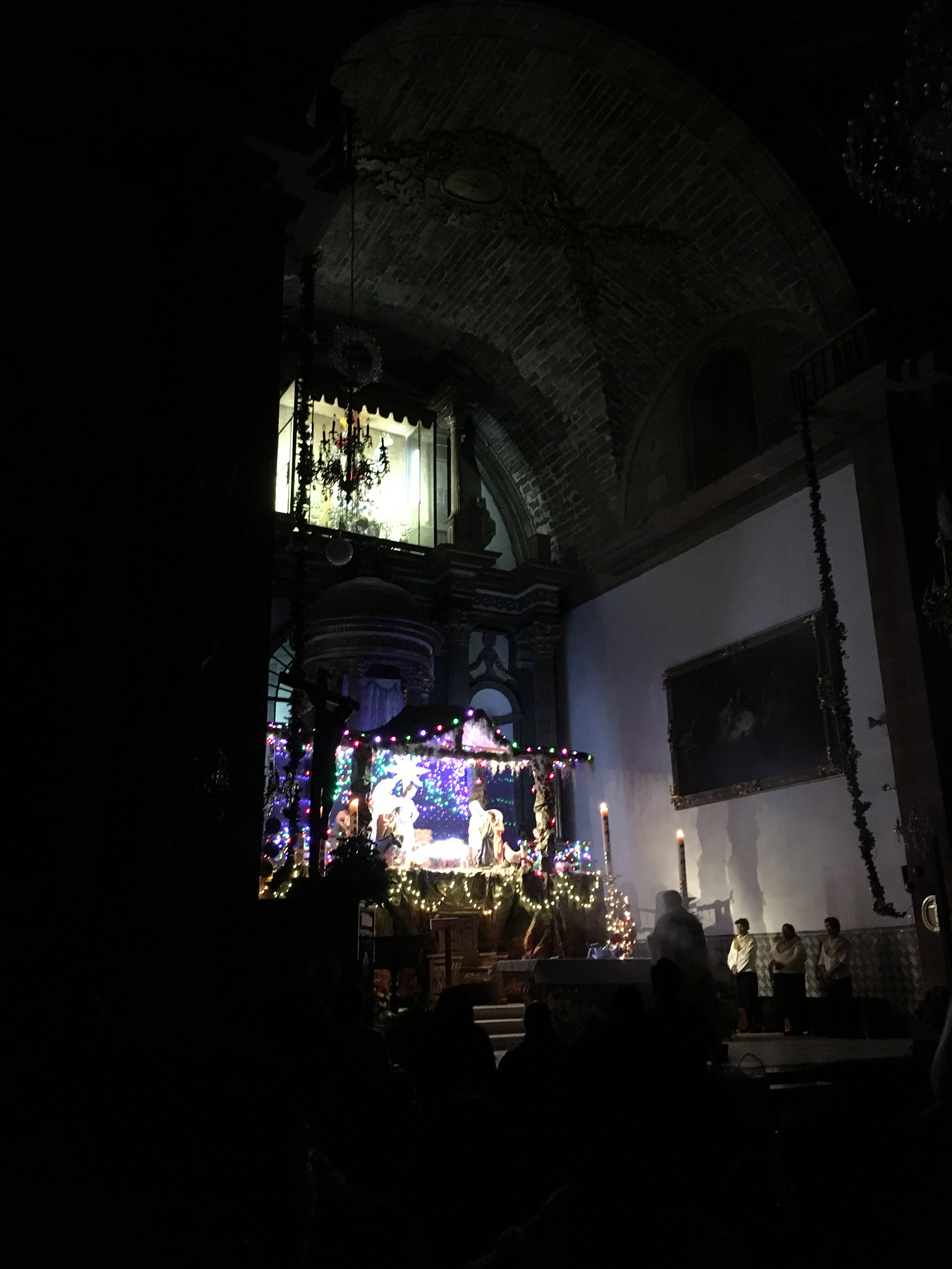"An ode to travel" by Shahid H N

Originally posted by Shahid on his substack, shahid’s riffs , in March 2023
A few months ago, I did a short Twitter thread on how I like to approach travel. I’ll expand on that a bit more today, interspersed with anecdotes from my own experiences.
Travel is embodied philosophy
A friend of mine recently asked me at a party, “Shahid, why do you enjoy traveling?” And though I did have a halfway decent answer to offer, the question still amazed me. I realized that not everyone thinks of travel the way I do: done right, it can be one of the most valuable human experiences life has to offer. “Travel expands your horizons” is very cliché – yet, it’s a highly underrated idea by many people.
A life unexamined is still worth living, but it would likely be a lot more colorful if we give some thought to the values underlying. The study of philosophy is one way to do that, and thousands of books have been written grappling with the question of how to live the good life.
But how we do that is informed not just by the words we read on paper, but also by the experiences we have and the people we talk to. And it’s one thing to contend with ideas and values in a cold, sterile way – it’s something else entirely to form a connection with a person or place that lives those values out. The emotional investment you’ve made acts as skin in the game and helps you understand an idea more sincerely and deeply. The conscious is downstream of the subconscious.
Seven Principles for Travel
Make a plan, but don’t be stuck to it.
The purpose of planning (maybe better called research) is to understand the lay of the land. It is to create possibilities, not restrict them. Open yourself up to serendipity and allow plans to change. At the same time, don’t go with zero idea of what to do, you’ll just end up wasting time on the ground.
I’m a big believer in winging it. I’m a big believer that you’re never going to find perfect city travel experience or the perfect meal without a constant willingness to experience a bad one. Letting the happy accident happen is what a lot of vacation itineraries miss, I think, and I’m always trying to push people to allow those things to happen rather than stick to some rigid itinerary.”
— Anthony Bourdain

Talk to people
Have conversations with as many interesting people as possible. I’m a bit biased towards talking to locals, as that’s the best way to build up context about the place you’re visiting – though fellow travelers are often in a better position to sit down and chat with you. There’s a ton to be learnt from someone who grew up and lives in a very different part of the world from you.
I was in León, Nicaragua during my final winter break of college. At the time, I was in a self-confident and celebratory mood – I had just signed a job offer, and I knew I had a fun last semester of school ahead of me. There I met Marlon, and over the course of the walking tour that day and a couple of follow-up rounds of drinks, I got to know him better. He was a mechanical engineering student at the local university, who was particularly interested in hydrogen fuel cells and hoped to do research in the United States someday. On the side, he gave walking tours for free in order to get better at English and meet people from all over the world. I’m not sure how well his family was doing at the time (though GDP per capita in Nicaragua is about 35 times less that of the US). He was very generous with his time, and I made a friend.
Getting to know his story humbled me. If he could be that optimistic given his circumstances, there was a lot more I could be doing with the blessings the world had given me. I really hope Marlon is doing well right now.

Go off the beaten path
Be curious about the lesser traveled parts of the place you’re going to, because those are where you get to observe what life is really like. It may get a little uncomfortable, but often the best experiences are on the other side of a little bit of discomfort. (That being said, things are often “touristy” for a good reason. Don’t be afraid to stand in line for a bit or fight the crowd for the perfect Instagram shot if you need to – just don’t make that your whole trip.)
One of my favorite travel memories came about by aimlessly wandering around San Miguel de Allende, Mexico on Christmas Eve after dinner, walking into a dark cathedral just as Mass was about to start, and watching as the candles were slowly lit while the choir sang Silent Night. It was a powerful, spiritual, and somewhat surreal experience. Though the town itself is popular with tourists, my friend and I were the only travelers there as far as I remember. I don’t think we could have planned for that.

Be a relativist
As Tyler Cowen said earlier, travel is one of the best ways to realize how culturally specific your own practices are. You’ll encounter many value systems and norms which seem strange at first glance. Some you’ll grow to appreciate or at least respectfully disagree with, others you may be shocked or disgusted by. But least you had the chance to observe them with a closeness that no number of books could provide. Try your best to understand things from the perspective of someone who grew up in that specific context, instead of imposing your own values onto people.
Along the same lines, try a variety of things you wouldn’t normally – experiences, food, art, etc. Evaluate something by the standards of what it’s trying to be, not your conception of what it should be.
Get close to nature
Many of us who live urban lifestyles rarely get the chance to truly get close to nature. Sure, you may have a nice park nearby to bring your dog to for a few hours – that’s not quite the same. Being close to the vastness of nature, far from your usual routine, invokes a sense of the sublime. It humbles you and puts your problems into perspective.

Contextualize your own life
Understanding the history and culture of another place can often provide a mirror for you to understand your own life better.
Cuba was one of the most fascinating places I’ve visited. In a society where the means of production is tightly controlled by the government, navigating the black market is a challenging but necessary endeavor that nearly everyone participates in. Almost everyone would contribute to the black market whatever product they had access to from their position within the government machinery. I saw firsthand many examples of human ingenuity in working around the system – the most striking one being backrooms in mobile phone repair shops filled with computers, where people would download the previous weeks worth of global entertainment onto their hard-drives, provided by the few people who had access to high-speed internet as part of their government jobs. Imagine my surprise when our cycling tour guide told us his favorite singer was Billie Eilish, even though a few hours earlier I had discovered that most media websites were blocked on public WiFi (which was the only Internet access method that the state provided).
Nothing like visiting a communist/socialist country to help you deeply appreciate living in a capitalist democracy, where human ingenuity could be channeled in a creative way instead. That being said, the Cuban people’s zest for life was incredible to watch. As much as I love New York City, Havana was truly the city that never sleeps.
Let the traveler’s mindset persist
You let a feeling of curiosity and openness overcome you while you travel – don’t lose it once you get home. Alain de Botton describes this well when he talks about “a traveling mindset”:
What, then, is a travelling mind-set? Receptivity might be said to be its chief characteristic. Receptive, we approach new places with humility. We carry with us no rigid ideas about what is or is not interesting. We irritate locals because we stand in traffic islands and narrow streets and admire what they take to be unremarkable small details. We risk getting run over because we are intrigued by the roof of a government building or an inscription on a wall. We find a supermarket or a hairdresser’s shop unusually fascinating. We dwell at length on the layout of a menu or the clothes of the presenters on the evening news. We are alive to the layers of history beneath the present and take notes and photographs.
— Alain de Botton, The Art of Travel
But that’s not just a good mindset for travel, that’s a great mindset for life! There’s probably a lot about your everyday context that would fascinate you if you were curious. Traveling wide and often trains your mind to maintain this mindset.
